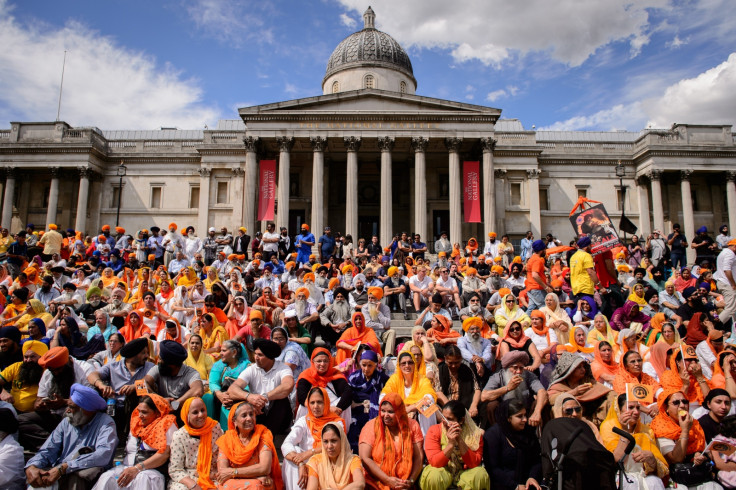Did Margaret Thatcher's government play a role in India's 1984 Sikh Massacre?

On 5 June, thousands of Sikhs from the UK are expected to march through central London in protest against the British government's role in the 1984 Sikh Massacre that took place in India. The protest comes on the 32nd anniversary of the Sikh Massacre, with British-Sikhs calling for a UN-led inquiry into claims that Margaret Thatcher's government provided military assistance to the Indian government during the Sikh attack.
IBTimes UK rounds up everything you need to know about the 1984 Sikh Massacre and Britain's alleged role in the killings.
What was the 1984 Sikh Massacre?
In 1984, Indian Prime Minister Indira Gandhi ordered a military attack on one of the country's most significant Sikh religious centres, Darbar Sahib, also known as the Golden Temple in Amritsar, Punjab. Operation Blue Star took place between 3-8 June 1984 and was aimed at flushing out Sikh separatists, who were demanding an independent Sikh homeland (Khalistan) in Punjab.
According to Indian government statistics, roughly 400 people were killed, including 87 soldiers. However, Sikh groups have disputed this figure, with the Sikh Federation UK estimating that more than 11,000 Sikh pilgrims were killed by the Indian army.
Why has the UK government been involved?
In January 2014, declassified documents revealed that the Thatcher government had sent an SAS officer to new Delhi in 1984 to advise the Indian government on how to expel separatists from the Golden Temple in Amritsar. Upon this revelation, Prime Minister David Cameron ordered Cabinet Secretary Sir Jeremy Heywood to launch an investigation into the British role in the 1984 Amritsar attack.
However, six months later Foreign Secretary William Hague told British parliamentarians that although British military had advised India ahead of the attacks, it only had a "limited impact" on the situation. The BBC reported at the time that Hague insisted that UK assistance had been "purely advisory" and had been given months ahead of the incident.
During his speech, Hague said that the British government had received an urgent request from India to help regain control of the Golden Temple from Sikh separatists. Although a British military advisor had been sent to India in February 1984, Hague said that India had been told an attack should be the last resort.
Prime Minister David Cameron then said: "I hope the manner in which we have investigated these dreadful events will provide some reassurance to the Sikh community, here in Britain and elsewhere. A single UK military officer provided some advice. But critically, this advice was not followed, and it was a one-off."
What are British-Sikhs saying?
Over the last year, the Sikh Federation UK have commissioned Phil Millar, the original researcher who came across the Amritsar documents, to conduct an investigation of the available declassified papers at the National Archives. They say that his investigation contradicts the conclusion reached by Sir Jeremey Heywood.
Gurjeet Singh, National Press Secretary for the Sikh Federation UK, told IBTimes UK: "It not only demonstrates how India successfully used promises of arms deals to pressure the UK government to assist in the genocide of Sikhs in 1984, but also took actions to try and discredit and silence the minority Sikh community in Britain from raising its voice of opposition."
The Sikh Federation are now using the findings of the investigation to increase political pressure for a judge-led independent public inquiry into Britain's role in Operation Blue Star, as well as "anti-Sikh measures" used against the British-Sikh community.
© Copyright IBTimes 2025. All rights reserved.






















